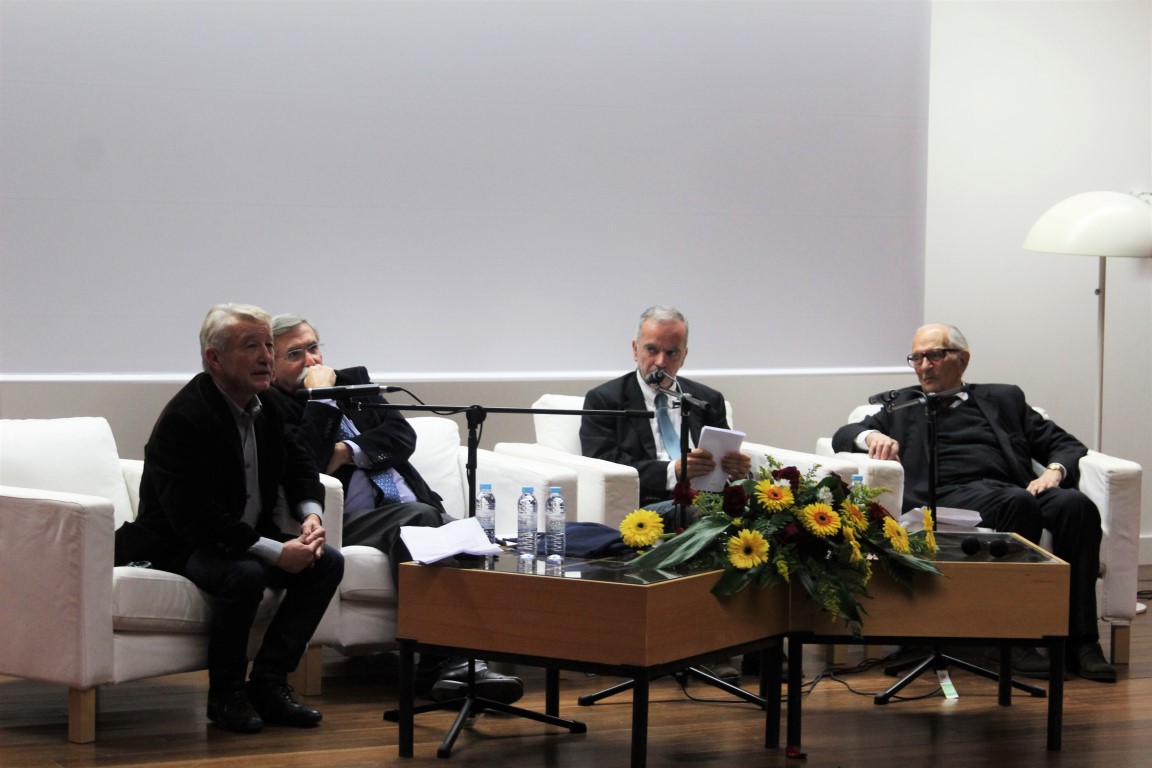
"After all, who are we?" The question was raised by João Guerreiro, in the first debate of the cycle “The Algarve, Portugal and the Future”, which took place yesterday, Wednesday. An intervention where the Former rector of the University of the Algarve (UAlg) was not soft, since, he says, "the Algarve lacks a regional project" and the blame lies with the Algarve themselves.
The auditorium of the João de Deus Secondary School, in Faro, filled in full to hear both João Guerreiro and Adriano Moreira, lawyer, university professor and historical director of the CDS, Guilherme d' Oliveira Martins, executive administrator of the Calouste Gulbenkian Foundation, and Paulo Teixeira Pinto, responsible for the creation of the Zero Museum, in Santa Catarina da Fonte do Bispo (Tavira).
For João Guerreiro, the problem is, to a large extent, the performance of the region, as a community, which «could be better». «We have enormous potential, but we lack strength and a regional project», he believes.
«Within the society of gentle customs, which is Portugal, we are still a community with greater gentle customs. We are small, but we have a life path that is not sufficiently affirmative of the region's potential», he began by saying.
In other words, the region is attractive, but «we are not very interventionist», which means that the Algarve is unable to «structure the region's attractiveness».
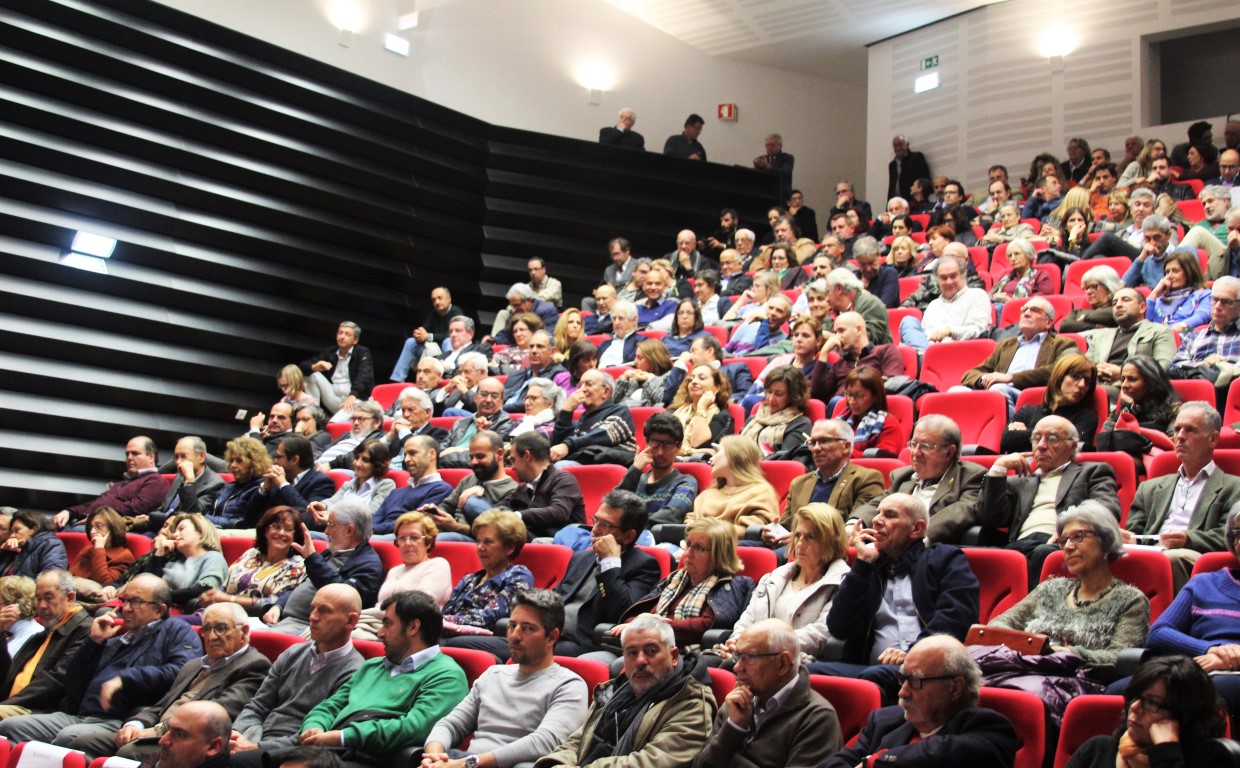
In the view of the former UAlg rector, these weaknesses “may have to do with our size”, but also “with our internal structure, which is an archipelago – each municipality has its own dynamics”.
«The municipalities almost live together because they have to live together. There is no interaction and integration in the life of the region that can be a step forward in constituting a mobilizing attraction project», he added.
In his chair, Adriano Moreira, aged 95, watched the entire debate attentively. His intervention, more focused on what the future of Portugal will be, in addition to revisiting the country's history, left a warning: «all the future must always be aware of the circumstance that the unforeseen is waiting for an opportunity».
“International dependence” was also addressed by the historical leader of the CDS. «The Portuguese must be aware» that this dependence «is constant», he said.
Guilherme d'Oliveira Martins, who has Algarve roots, was not physically present at the debate, but made contact with the audience through a voice call.
According to the executive director of Gulbenkian, there is "the temptation to think that the Algarve is just sun and sea, but we have a set of cultural, economic and social realities that can't be missed".
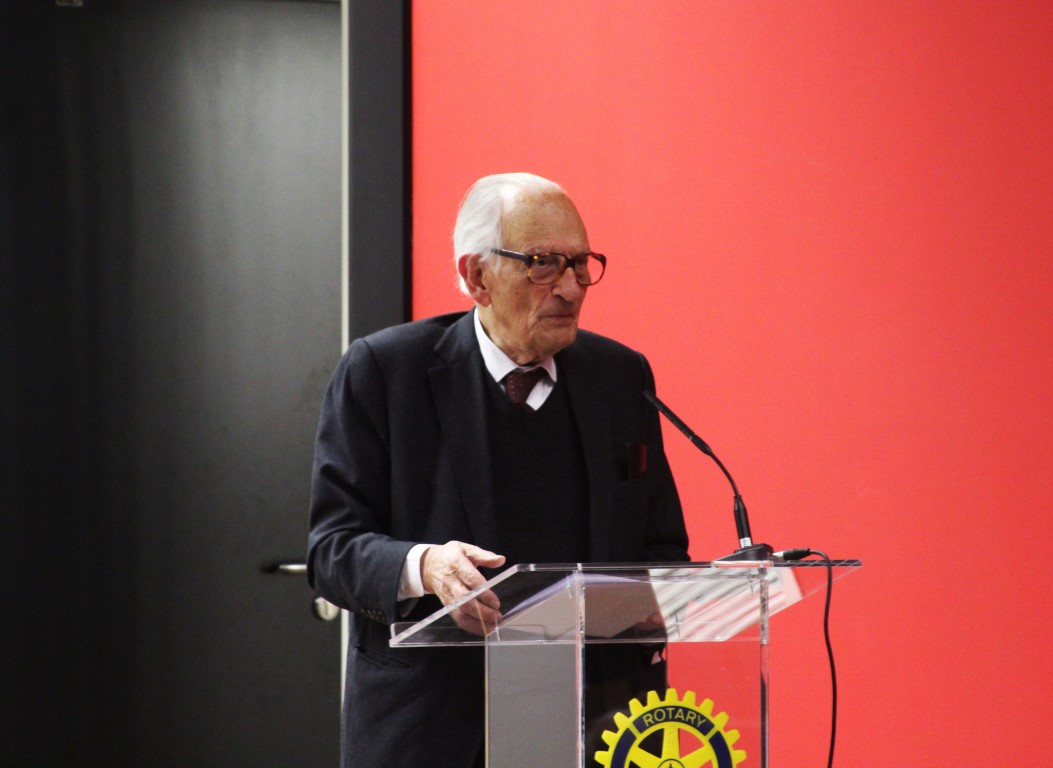
Speaking of names such as Lídia Jorge, António Ramos Rosa or Casimiro de Brito, Guilherme d'Oliveira Martins said that, by looking at the «creative capacity of the Algarve and the Algarve, we find the possibility of developing and pursuing a mission of cultural development».
This is, moreover, the beach of the project that was presented by Paulo Teixeira Pinto, responsible for the creation of the Zero Museum, in Santa Catarina da Fonte do Bispo (Tavira).
The objective is to create a digital art museum, transforming the former silos and warehouses of the cooperative in that location, thus creating yet another cultural attraction in the region. The work, he assured, “is close to starting”.
This cycle of conversations is organized by the publisher Sul, Sol e Sal and the Rotary Club of Faro. At the end of the first session, Manuel Brito, founder of this publisher, spoke to the Sul Informação, made a «positive balance».
“We had a full house, which is good, and high-level guests,” he said. The next session of this cycle is already scheduled for January 26th, will have the economy as the central theme and António Rebelo de Sousa, André Jordan and Vítor Neto as guests.
On this occasion, the book “O Algarve em Números”, an economic study carried out by António Rebelo de Sousa for Sul, Sol e Sal, will be presented.
In fact, the idea of this publisher is «to publish books that reflect on how the Algarve should position itself in the area of economy, tourism, agriculture or the environment and culture», explained Manuel Brito. To this end, names such as Lídia Jorge, who attended this first debate, and Guilherme d'Oliveira Martins, have already been invited.
Therefore, the main objective of this cycle is to encourage debate and for «people to think about the Algarve and the future», he said, sometimes with disconcerting and different perspectives.
Photos: Pedro Lemos | Sul Informação
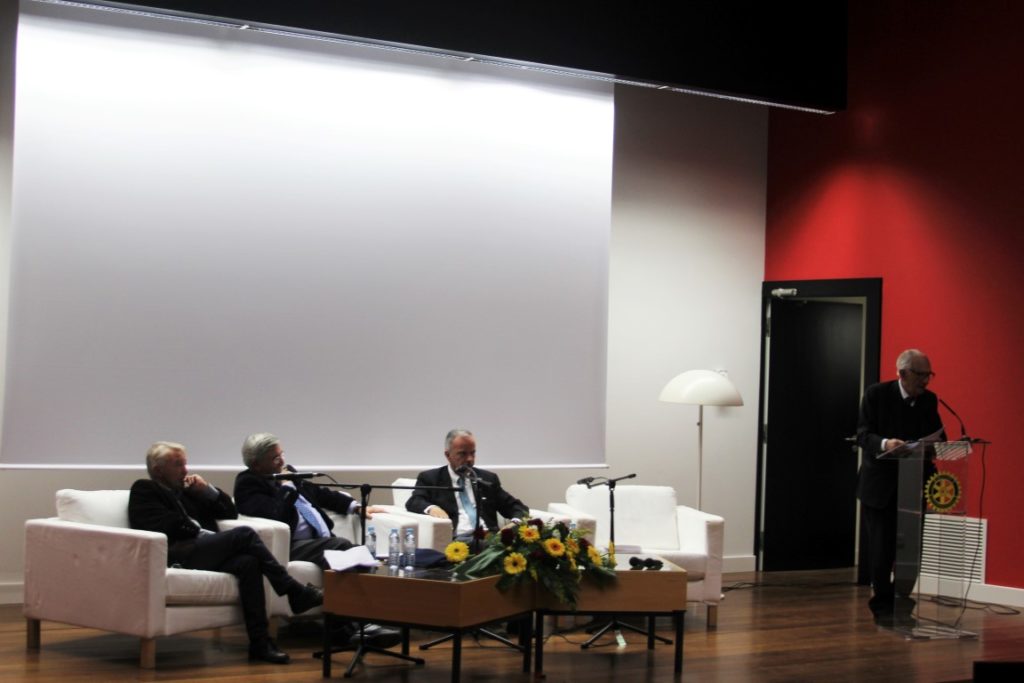
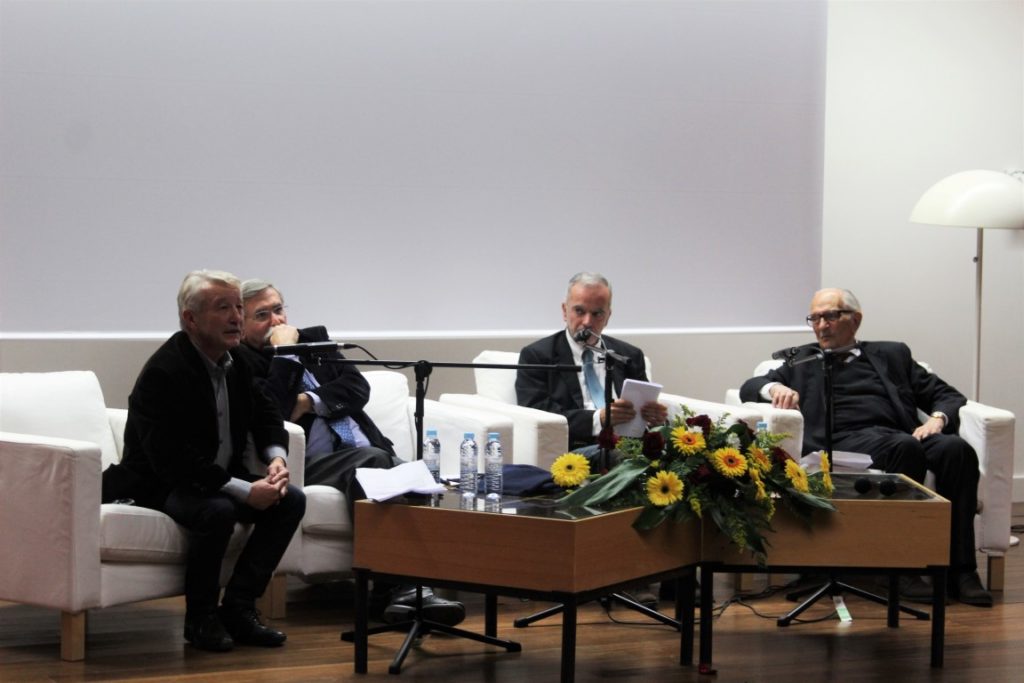
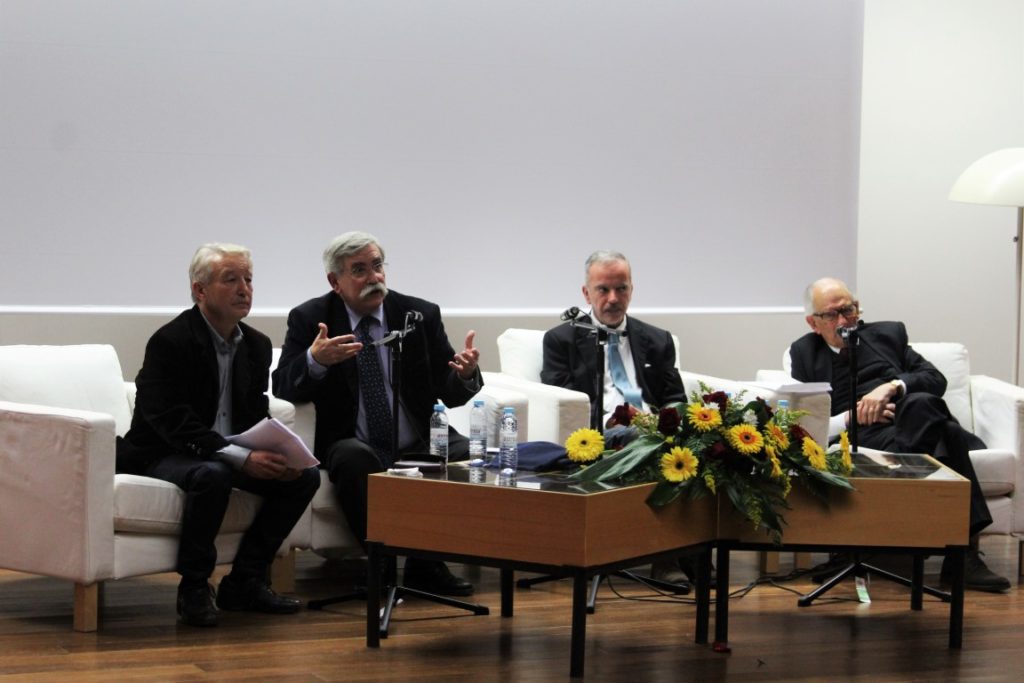
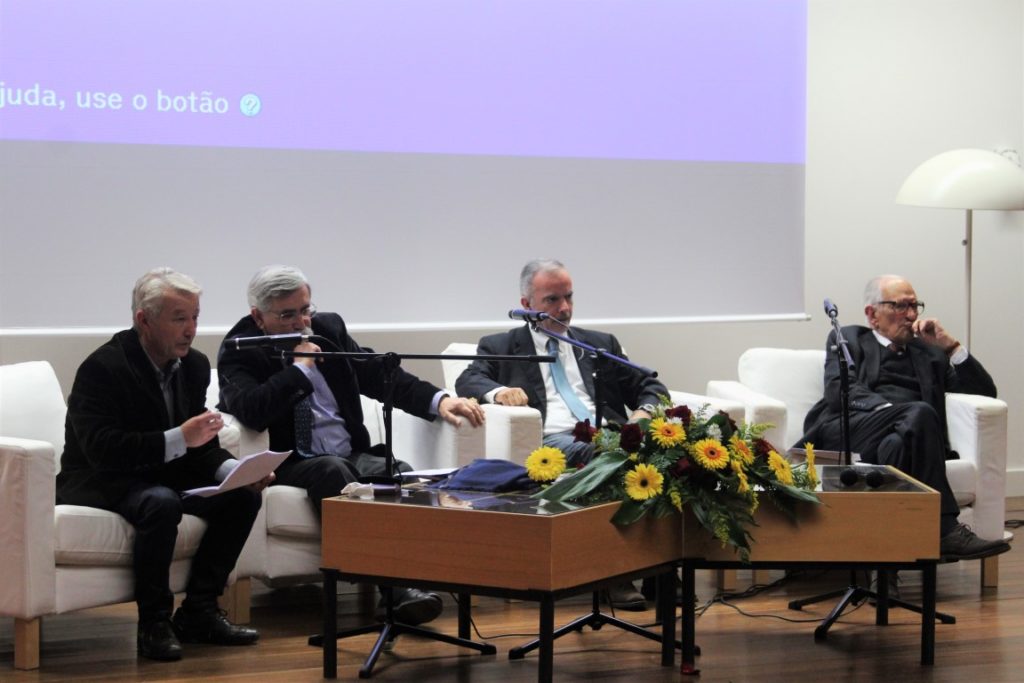
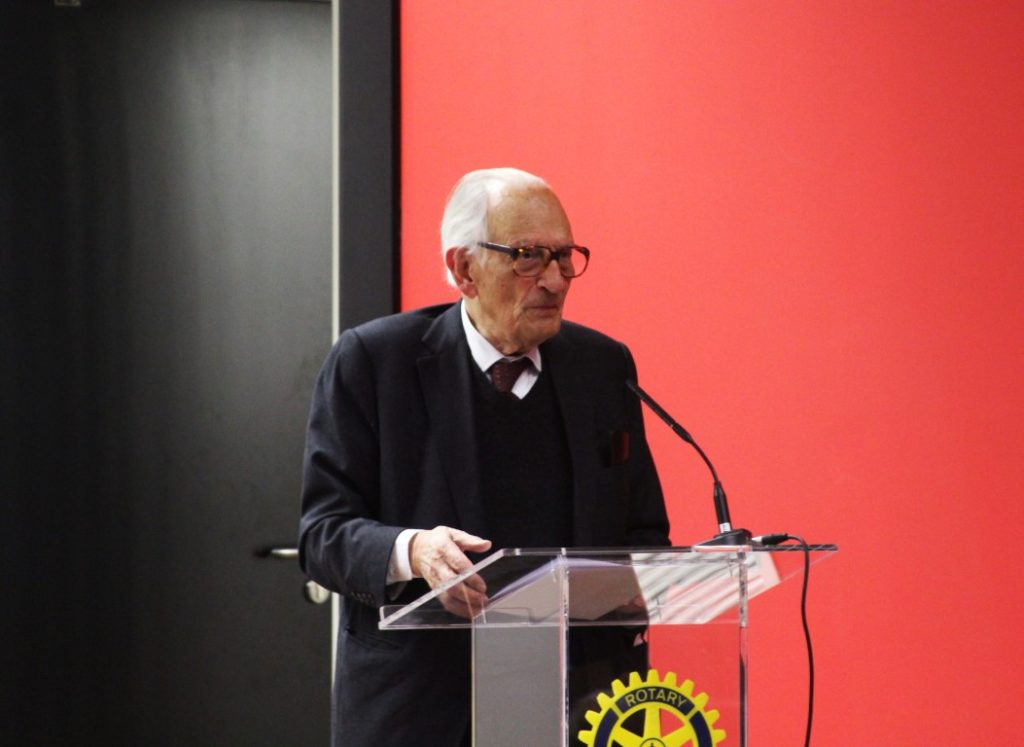
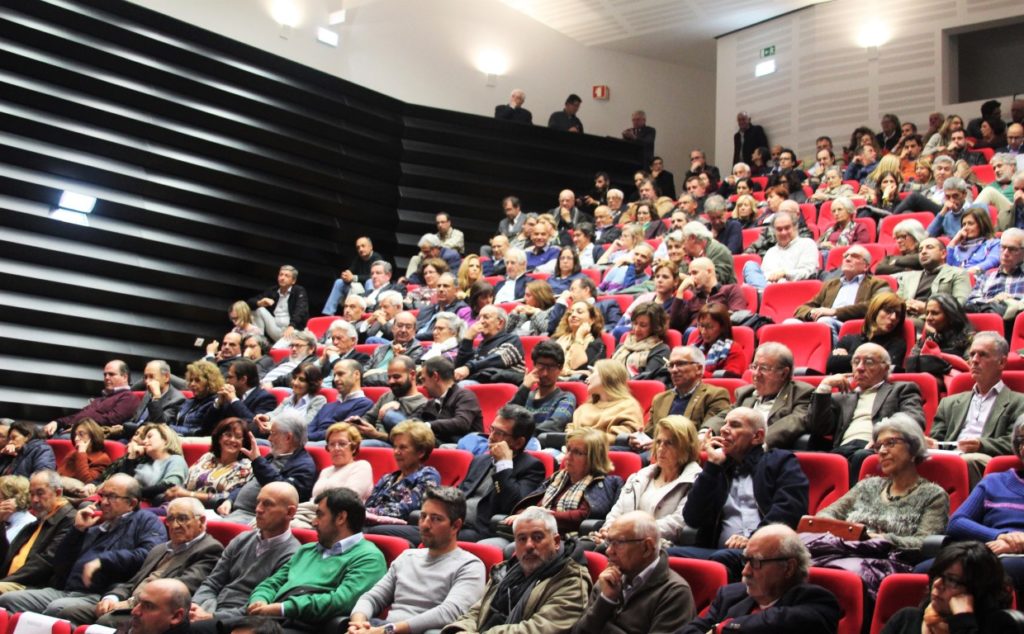


















Comments